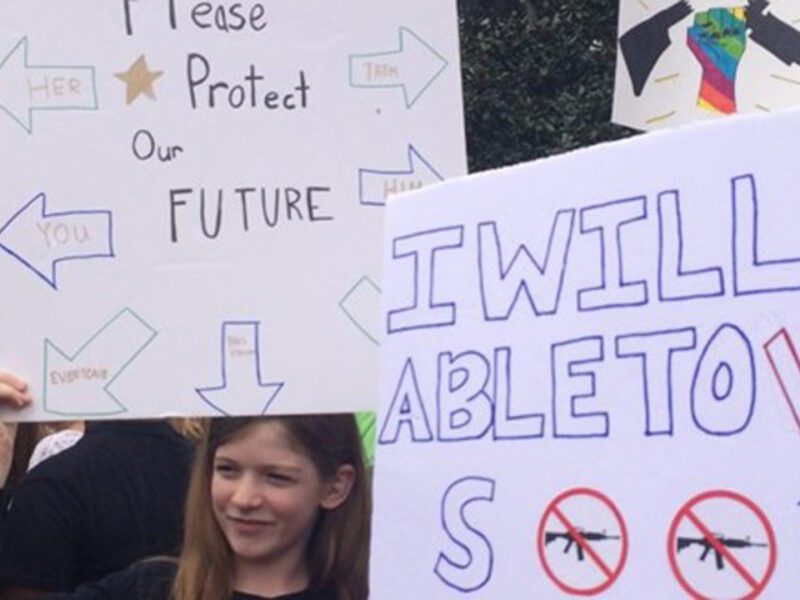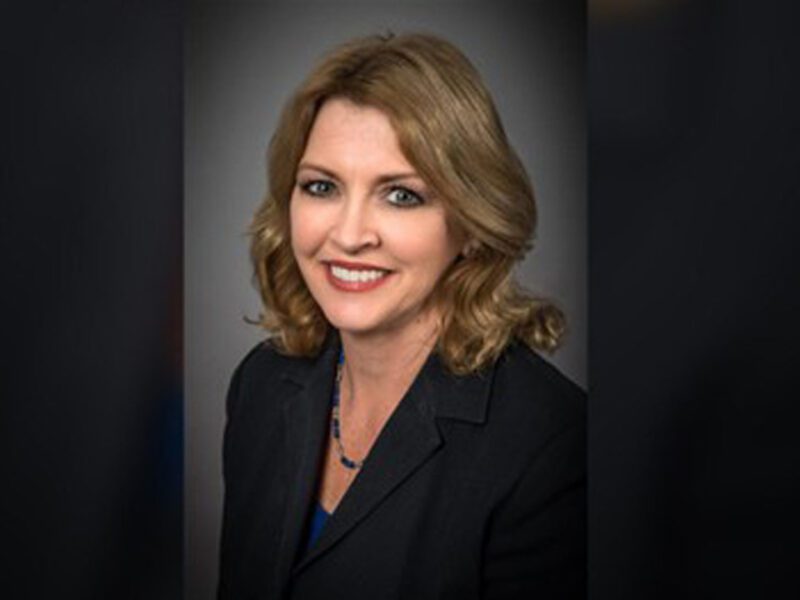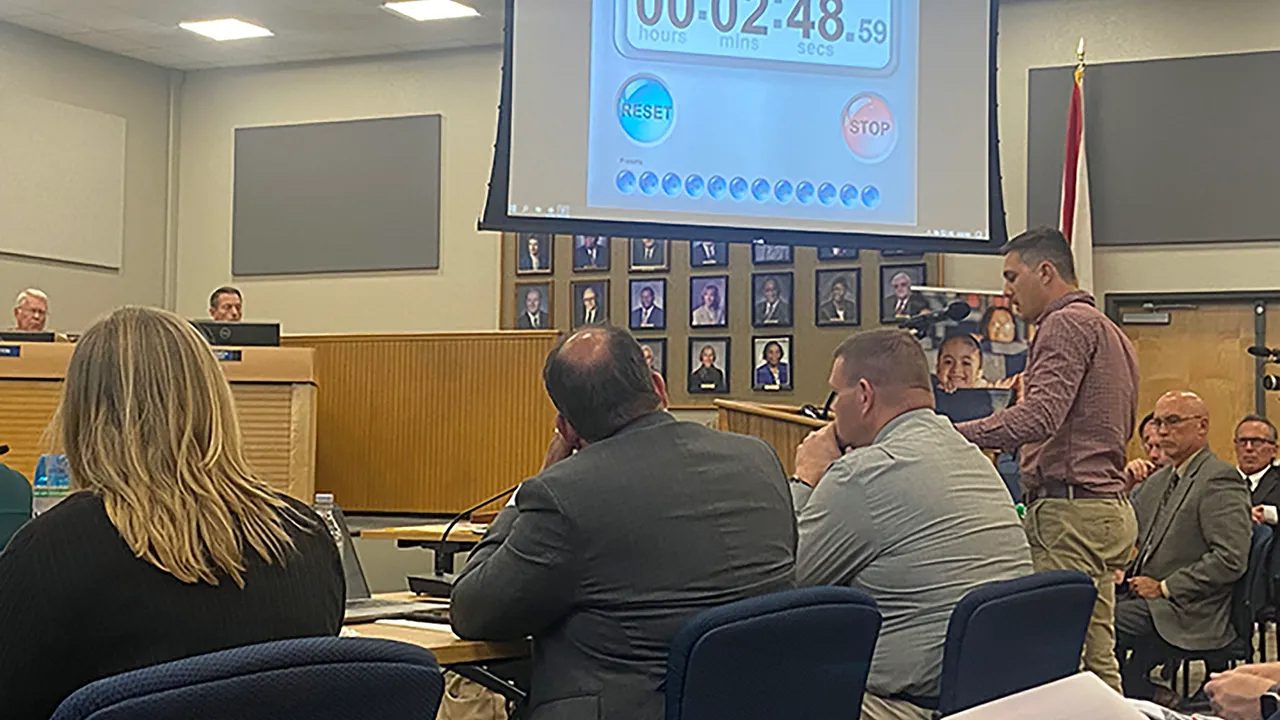
Nation’s largest publisher files federal suit to block Florida county’s book ban
Tallahassee Democrat | By Douglas Soule | May 17, 2023
TALLAHASSEE — A free speech organization and the largest publisher in the nation are trying to block book bans in a Florida Panhandle county.
PEN America and publisher Penguin Random House — joined by parents and authors — filed suit in federal court Wednesday morning, alleging the book bans in Escambia County public schools are unconstitutional.
“Books have the capacity to change lives for the better, and students in particular deserve equitable access to a wide range of perspectives,” said Nihar Malaviya, CEO of Penguin Random House, in a statement. “Censorship, in the form of book bans like those enacted by Escambia County, are a direct threat to democracy and our Constitutional rights.”
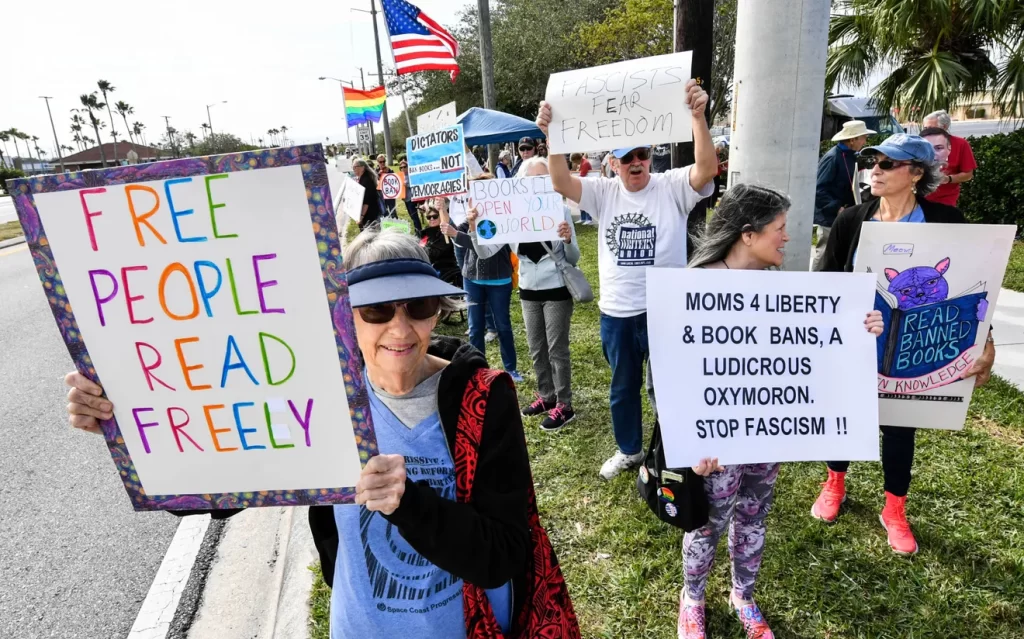
Craig Bailey/Florida Today
Book bans have dramatically risen in recent years, and the lawsuit says Florida has become an epicenter for the trend, with Escambia County being the “heart of that effort” in a state led by Gov. Ron DeSantis, who is on the precipice of announcing a presidential campaign.
Escambia School District Communication Coordinator Cody Strother said over email that he’s “unable to make comment on potential pending litigation.”
When called Wednesday morning, Board Chairman Paul Fetsko said he had “no idea” about the lawsuit and referred the USA TODAY NETWORK – Florida to county legal counsel.
The suit alleges that the bans are in violation of the First Amendment as well as the Constitution’s equal protection clause, since the targeted books are disproportionately by people of color and LGBTQ people and discuss topics related to both communities.
The targets of the lawsuit are the Escambia County School District and the Escambia County School Board.
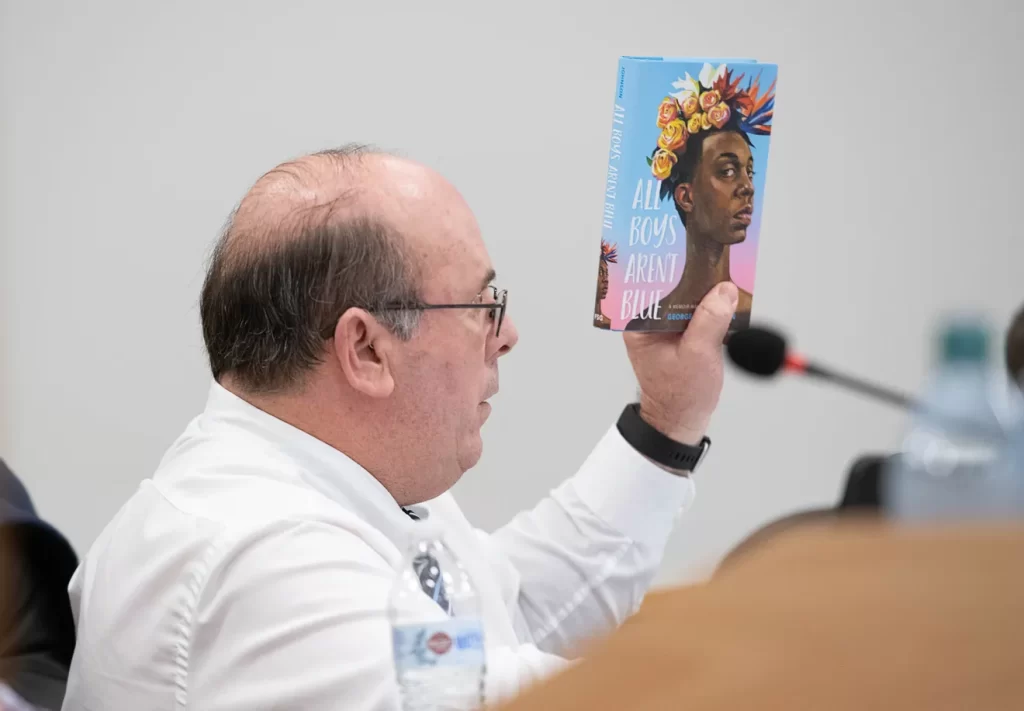
Gregg Pachkowski / gregg@pnj.com
“Books are being ordered removed from libraries, or subject to restricted access within those libraries, based on an ideologically driven campaign to push certain ideas out of schools,” write the plaintiffs in the suit, which was filed in the U.S. District Court for the Northern District of Florida.
Those plaintiffs, who are being represented by national law firm Ballard Spahr LLP and the nonprofit Protect Democracy Project, also include county elementary school parents Lindsay Durtschi and Ann Novakowski.
The complaint says the parents, whose children want to check out books that are now unavailable, want them to have access for exposure to “different viewpoints and experiences so that they will be better prepared to engage with a wide range of people.”
Also suing are authors Sarah Brannen, George M. Johnson, David Levithan, Kyle Lukoff and Ashley Hope Pérez, all of whom have books who have either been removed from libraries or are restricted pending a reviewal process.
Escambia-book-ban-lawsuitThat process may take a while, as the Escambia County District School Board paused it last month, waiting for more guidance from the state on how to move forward. In the meantime, there’s well over a hundred books that have received complaints but no reviews that can only be accessed with written parental approval.
Most of the complaints have come from a single person within the county: Northview High School language arts teacher Vicki Baggett.
By the time the county had enacted the pause, it had banned nine books from all its schools and limited access to even more.
Books that receive complaints are reviewed by the county’s District Materials Review Committee. If the person who filed the complaint disagrees with their decision, they can appeal to the school board.
The banned books include “And Tango Makes Three,” a story about two male penguins who forge a family together.
“The fascination is still on that it’s two male penguins raising a chick,” said board member David Williams, according to The Daily Beast. “So, I’ll be voting to remove the book from our libraries.”
Also banned: “All Boys Aren’t Blue,” a memoir and manifesto by George M. Johnson, who reflects on growing up Black and queer.
Books being pulled from shelves across Florida
It’s not just Escambia County. Titles have been purged across Florida since DeSantis signed the Curriculum Transparency Act last year, which requires districts to catalog every book on their shelves and put a formal review process in place for complaints.
The Wakulla County School District just pulled children’s graphic novel “Little Rock Nine (Turning Points)” from elementary school shelves after a parent complained about racial slurs in the text. And, recently, in Indian River County, a graphic adaptation of “The Diary of Anne Frank” was removed after conservative advocacy group Moms for Liberty complained.
The book banning has generated nationwide attention and controversy, even as DeSantis insists it’s a “hoax” propagated by left-leaning media outlets, unions and activists.
“Exposing the ‘book ban’ hoax is important because it reveals that some are attempting to use our schools for indoctrination,” DeSantis said in a statement. “In Florida, pornographic and inappropriate materials that have been snuck into our classrooms and libraries to sexualize our students violate our state education standards.”
Alex Lanfranconi, director of communications for the Florida Department of Education, continued the theme when responding to the lawsuit Wednesday morning.
“Luckily for them, there are no ‘book bans’ in Florida,” Lanfranconi said over email. “Current law requires that materials in schools be age appropriate and not contain adult material such as pornography.”
While neither Florida Department of Education nor the governor’s office have called for any bans on books, the complaints have some districts preemptively pulling books off of shelves, even during the review process, to err on the side caution.
A new bill passed during this year’s legislative session, however, would require districts to pull texts within five days of the complaint and keep them off shelves during the review process. The bill, signed into law by DeSantis on Wednesday morning, takes effect on July 1.
Others laws have enflamed fears of censorship, too. There’s the “Stop WOKE Act,” which restricts how race is discussed, and the Parental Rights in Education Act. Dubbed “Don’t Say Gay” by critics, it restricts classroom instruction on sexual orientation and gender identity in grades K-3. The state Board of Education expanded that through the 12th grade last month.
Accused of running afoul of the policy, a fifth-grade teacher in Hernando County is being investigated after showing her students Disney’s 2022 movie “Strange World.” It’s the first Disney movie with an out, gay character.
Lawsuits, lawsuits, lawsuits
Wednesday’s legal challenge is not the first prompted by Sunshine State book bans.
The state has agreed to pay a law firm up to $250,000 to defend it in a lawsuit filed by Florida’s largest teachers association, the Florida Education Association, which says the Department of Education took the Curriculum Transparency Act farther than the law intended.
The DeSantis administration and its controversial policies have been a lightning rod for litigation, including over the “Don’t Say Gay” law and the “Stop WOKE Act,” and bills that passed the recently-ended legislative session are certain to usher in a new slew of suits.
As recently as last week, the Florida Education Association and other groups sued the state after DeSantis signed into law restrictions for typically Democrat-allied unions, including those for teachers and healthcare workers.
But, as soon as DeSantis signs the budget, he’ll be fortified with an unprecedented almost $16 million for litigation costs to defend his policies.



